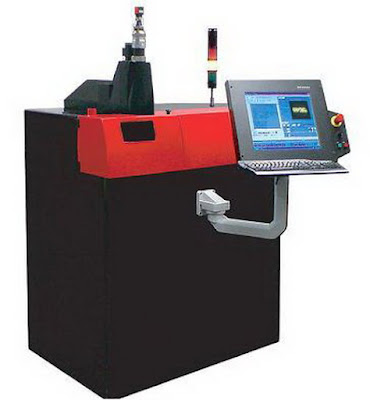Laser cutters operate by focusing a beam of light, or laser, it pinpointed a site on an object in order to cut it rather than using a solid object, like a blade to cut the object. A computer system with a vector graphical software will also be needed. Instructions are given to the laser cutter through software which deciphers design geometry to numerical CNC machine code. A laser can also take in data from drawings made with the help of computer-aided design (CAD) software.
Laser Cutting Machine Fundamentals
Laser Machine
Laser Machine 1
Laser Machine 2
Configurations of Laser Cutting Machines
The configurations of the machine are characterized based on the way the laser beam will come in contact with the material that will be cut. There are three main setups that work on the X and Y axes. The first configuration is referred to as moving material. In this setup, the object that will be sliced is placed below the cutter head. The next setup is the hybrid laser. Both the table and the cutter head move in opposite axes, offering optimal stability of the beam’s path. The third configuration is the flying optic setup, used by Maloya, where the cutting head is the part of the machine that is in motion. The object being cut is static and this type of configuration produces very clean work. Its rate of motion is also the quickest among the three setups. The flying optic system helps in workflow speed since clamping of the material being cut is not necessary. There are also machines utilizing up to six axes.
Laser Cutting Machines
Laser Cutting Machines 1
Laser Cutting Machines 2
Laser Cutting Machines 3
Laser Cutting Workflow Loading and unloading can take up valuable production time but the speed of cutting with a laser can make up for this. Not having to clamp down the materials to be cut in some instances also saves time. Another consideration is if the laser cutter can be left on. Workers may have to turn turn off the power to take materials out of the machine and interrupt the flow of cutting.Lighting is another consideration in a manufacturing environment. Light emitting diode (LED) lighting is becoming more popular for saving energy. More green ways of lighting manufacturing environments are becoming available such as using motion sensors so lights are not used when no one is working.
Laser Cutting Equipment and Maintenance
With the money spent on laser cutting machines, sufficient upkeep can ensure that they keep running in a safe and reliable way. If the machine is not running optimally, bad cuts can be made. Process control such as checking cutting nozzles, lenses and other optics should be conducted regularly. Conducting frequent inspections on alignment can prevent many future problems. Air sources can affect focal lenses of the laser cutter. Lens clarity is extremely important. Operators can look at a focal lens and tell if it is dirty as well as by checking it with a polarizer. A lens can then be cleaned with alcohol and fine tissue or replaced. Laser optical components are considered consumables. Chiller units need to be maintained as well. They should be started prior to cutting. A laser cutter that has not been maintained will also run slower. Replaceable parts should also be kept available if they are needed. Keep exhaust systems up to par as well.
Laser Cutting and Training
Training of use of a laser cutting machine should include hands-on training as well as additional training in a classroom environment. It should involve basic operation of the laser cutter such as how to start and shut down the machine, operation and programming of the machine, upkeep and maintenance as well as safety. Oftentimes the purchaser of the machine will receive training from the supplier of the machine. Other training could include the creation and loading of drawings, scaling, and rotation. Other things to be learned are file usage, code, databases, laser tables and metrics.
Quality Control
In order to keep improving workflow processes, Corrective Action Requests (CARs) and Corrective Action Notifications (CANs) can be done. This involves problem reporting, the cause of the problem, and future problem preventions.









No comments:
Post a Comment